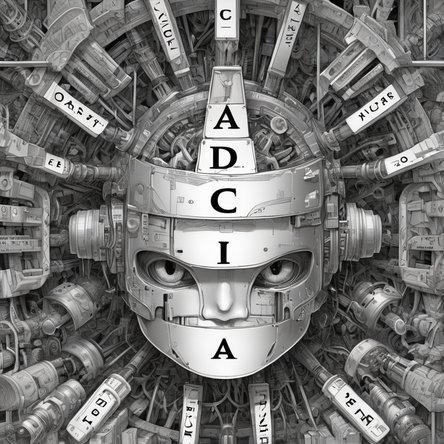Understanding CAPTCHA Codes
CAPTCHA, which stands for "Completely Automated Public Turing test to tell Computers and Humans Apart," is a type of challenge-response test used in computing to determine whether or not the user is human. This technology is essential for preventing automated bots from performing actions on websites, such as creating accounts, posting comments, or making purchases. CAPTCHA codes come in various forms, including distorted text, image recognition tasks, and more.
History of CAPTCHA Codes
The concept of CAPTCHA was first introduced in 2000 by researchers at Carnegie Mellon University. The initial purpose was to create a method to differentiate between human users and automated programs, as bots were increasingly becoming a problem on the internet. Early CAPTCHAs involved simple tasks like identifying distorted text, which humans could easily interpret but computers struggled with. Over time, as bots became more sophisticated, so did CAPTCHA technology, evolving into more complex forms like image recognition and interactive puzzles.
How CAPTCHA Codes Work
CAPTCHA codes work by presenting a task that is easy for humans to solve but difficult for computers. This is achieved through various means, such as distorting text or images in ways that are challenging for automated recognition algorithms. When a user attempts to complete a task on a website, they are presented with a CAPTCHA challenge. The user must correctly solve the challenge to proceed. If the solution is correct, the system assumes the user is human and grants access. If not, it may present another challenge or deny access.
Types of CAPTCHA Codes
There are several types of CAPTCHA codes, each with its own unique method of distinguishing between humans and bots:
- Text-Based CAPTCHAs: These involve distorted letters and numbers that users must correctly identify. The distortion can include varying fonts, colors, backgrounds, and shapes.
- Image-Based CAPTCHAs: These require users to identify specific objects within a series of images. For example, users might be asked to select all images containing traffic lights or crosswalks.
- Audio CAPTCHAs: These provide an audio clip of distorted speech that users must transcribe. This type is useful for visually impaired users.
- Mathematical CAPTCHAs: These present simple math problems that users must solve, such as addition or subtraction tasks.
- Interactive CAPTCHAs: These involve tasks like dragging and dropping objects or solving puzzles.
Importance of CAPTCHA Codes
CAPTCHA codes play a crucial role in maintaining the security and integrity of online services. By preventing automated bots from accessing and abusing services, CAPTCHAs help protect user data, prevent spam, and reduce fraudulent activities. For example, without CAPTCHA codes, bots could easily create thousands of fake accounts, post spam comments on forums, or participate in click fraud schemes.
Challenges and Limitations
Despite their effectiveness, CAPTCHA codes have some challenges and limitations. One major issue is accessibility. Some CAPTCHAs can be difficult for people with disabilities to solve, particularly those with visual or auditory impairments. While audio CAPTCHAs and other alternatives exist, they are not always available or effective.
Another challenge is the increasing sophistication of bots. As artificial intelligence and machine learning technologies advance, bots are becoming better at solving CAPTCHA challenges. This ongoing arms race between CAPTCHA developers and bot creators requires constant innovation to stay ahead of automated systems.
Innovations and Future of CAPTCHA Codes
To address these challenges, CAPTCHA technology continues to evolve. Some of the latest innovations include:
- No CAPTCHA reCAPTCHA: Developed by Google, this system requires users to simply check a box indicating "I'm not a robot." In the background, the system analyzes user behavior to determine whether they are human or a bot.
- Invisible reCAPTCHA: Also developed by Google, this version requires no user interaction. Instead, it analyzes user behavior on the website to determine if they are human.
- Biometric CAPTCHAs: These involve using biometric data, such as fingerprint or facial recognition, to verify a user's identity.
- Behavioral Analysis: Some systems analyze user behavior, such as mouse movements and keystrokes, to distinguish between humans and bots.
Ethical Considerations
The use of CAPTCHA codes also raises ethical considerations. Privacy is a significant concern, particularly with behavioral analysis and biometric CAPTCHAs. Collecting and analyzing user data to determine whether they are human can be seen as invasive. It is essential for developers to balance security needs with user privacy and ensure that data collection is transparent and consensual.
CAPTCHA Codes in Different Industries
CAPTCHA codes are used across various industries to enhance security:
- E-commerce: Preventing bots from making bulk purchases, creating fake accounts, or posting fake reviews.
- Social Media: Reducing spam, fake accounts, and automated posts.
- Banking and Finance: Protecting online banking and payment systems from automated fraud.
- Healthcare: Securing patient portals and online appointment systems from unauthorized access.
Conclusion
CAPTCHA codes are a vital tool in the fight against automated abuse of online systems. While they have evolved significantly since their inception, the need for continuous innovation remains as bots become more sophisticated. Balancing security with accessibility and privacy will be crucial as CAPTCHA technology continues to develop. By understanding the importance, challenges, and future of CAPTCHA codes, we can better appreciate their role in maintaining a secure and functional internet.




